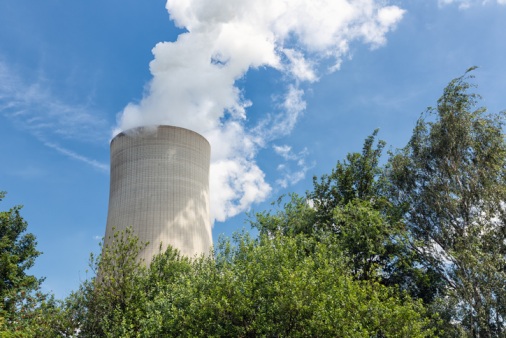Covid-19 shrinks demand for energy

Authored by MS Amlin
Slow economies and reduced transport and industry caused by coronavirus are slashing the global demand for energy.
The repercussions of the Covid-19 pandemic could squeeze the world’s energy demand by 6 per cent in 2020, the largest annual decline for 70 years, according to projections by the International Energy Association (IEA). If accurate, a plunge of this magnitude would equate to the combined energy demand of France, Germany, Italy and the UK in 2019. That’s more than seven times the impact of the 2008 financial crisis.
While demand is set to decline across all regions in 2020, advanced economies in both the European Union and the United States will feel the tightest pinch, with drops of around 10 per cent below 2019 levels, reversing the growth of global energy demand over the last five years.
More optimistically, the global slump could be limited to under 4 per cent, provided efforts to curb the spread of the virus and to restart economies prove more successful than expected. “However, a bumpier restart, disruption to global supply chains, and a second wave of infections in the second part of the year could curtail growth even further,” warns the IEA, in its 2020 review.
All fuels, with the notable exception of renewables, are set to experience their greatest contractions in demand for decades.
Oil
Oil demand could drop by 9 per cent, or 9 million barrels per day on average across the year, returning oil consumption to 2012 levels. Nose dives in global car sales are expected to impact petrol demand through the remainder of 2020, with only a gradual recovery by the end of the year.
Coal
Coal demand could decline by 8 per cent, in large part due to a fall in electricity demand of nearly 5 per cent over the course of the year. In China, demand could shrink by around 5 per cent, with an even greater decline expected in India. Lower-carbon alternatives will continue to fill this gap.
Natural gas
Global natural gas demand could decrease by 5 per cent in 2020, driven by a downtick in power and industry consumption. While less severe than oil (due to lower exposure to transportation fuels), this prognosis will send shockwaves through an industry that has enjoyed robust growth over the last decade.
Nuclear power
The need for nuclear power will diminish by 3 per cent in response to lower electricity demand, marking the largest decline not associated with a natural disaster. By way of comparison, the pandemic will prove 40 per cent as impactful as the Fukushima Daiichi accident in 2011.
Renewable energy
Renewables will be the most resilient energy source, with a 5 per cent growth in green electricity demand, even with supply chain and construction delays caused by the Covid-19 crisis. Renewables will approach the 30 per cent threshold of electricity supply globally. However, biofuels are likely to see demand decline, directly impacted by lower transport activity.
CO2 emissions
Stunning declines in energy demand will result in an 8 per cent drop (2.6 giga tonnes) in global carbon dioxide emissions, almost twice as large as all previous declines since 1945 combined. Nevertheless, this respite for the planet may be short-lived, according to the IEA: “[History shows that] the rebound in emissions may be larger than the decline, unless the wave of investment to restart the economy is dedicated to cleaner and more resilient energy infrastructure”.
About MS Amlin
MS Amlin is a leading global specialty commercial insurer and reinsurer with operations in the Lloyd’s, UK, Continental European and Bermudian markets.
Comprising Mitsui Sumitomo’s London and Bermuda-based operations and the historic Amlin businesses, MS Amlin specialises in providing insurance cover for a wide range of risks to commercial enterprises and reinsurance protection to other insurers around the world.
It is wholly owned and fully supported by the financial strength and scale of MS&AD of Japan, the eighth largest non-life insurer in the world. To learn more, visit www.msamlin.com.

